Between excessive centralization and hesitant decentralization

Amendment #43 to the Israel Planning and Building Law of 1995 was the most important step so far to devolve planning powers to the local planning commissions. The powers devolved, however, were minimal – the authority to approve a set category of amendments to local plans which contain only minor change to the existing plans. […]
Neighborhood Renewal in Israel – Evaluation and Results
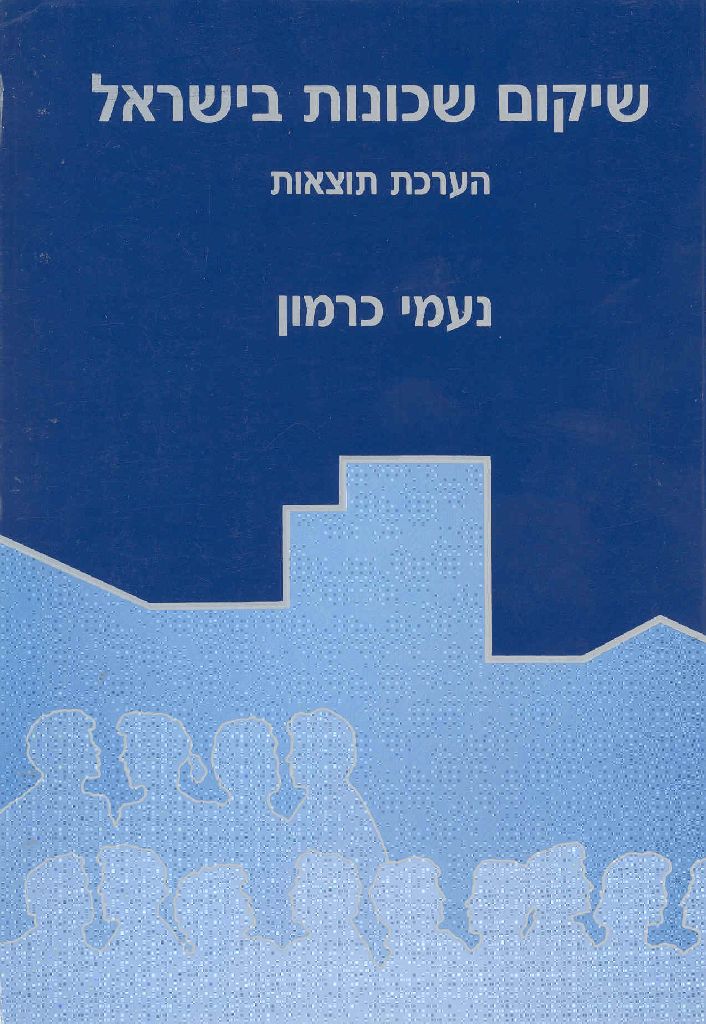
“The Plan for Neighborhood Rehabilitation and Renewal” known as the “Rehabilitation Project” has been in operation in Israel for ten years. Now it leaves the neighborhoods and changes it character. Formally, however, it still includes within its framework 90 neighborhoods countrywide, in which about 15% of the country’s citizens reside. In scope and complexity this […]
The Higher Education System in Israel – Issues, characteristics and unique Aspects
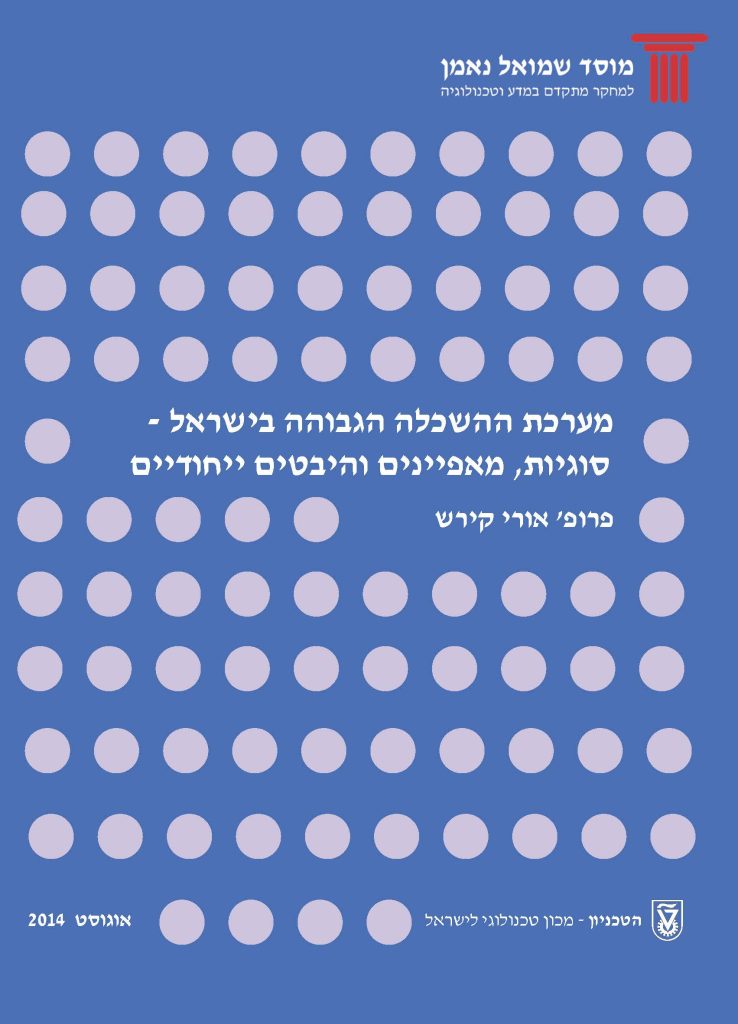
A broad view on the Israeli system of higher education is described. The development of the Israeli system has been influenced by developments in some other countries. Yet, this system is characterized by some unique aspects, including – education of prominence leaders, unprecedented national contribution, and worldwide research excellence – all these with relatively modest […]
Israel in 2030, Liberal Democracy, Populistic or Autocracy? ‘Round Table’ Discussion
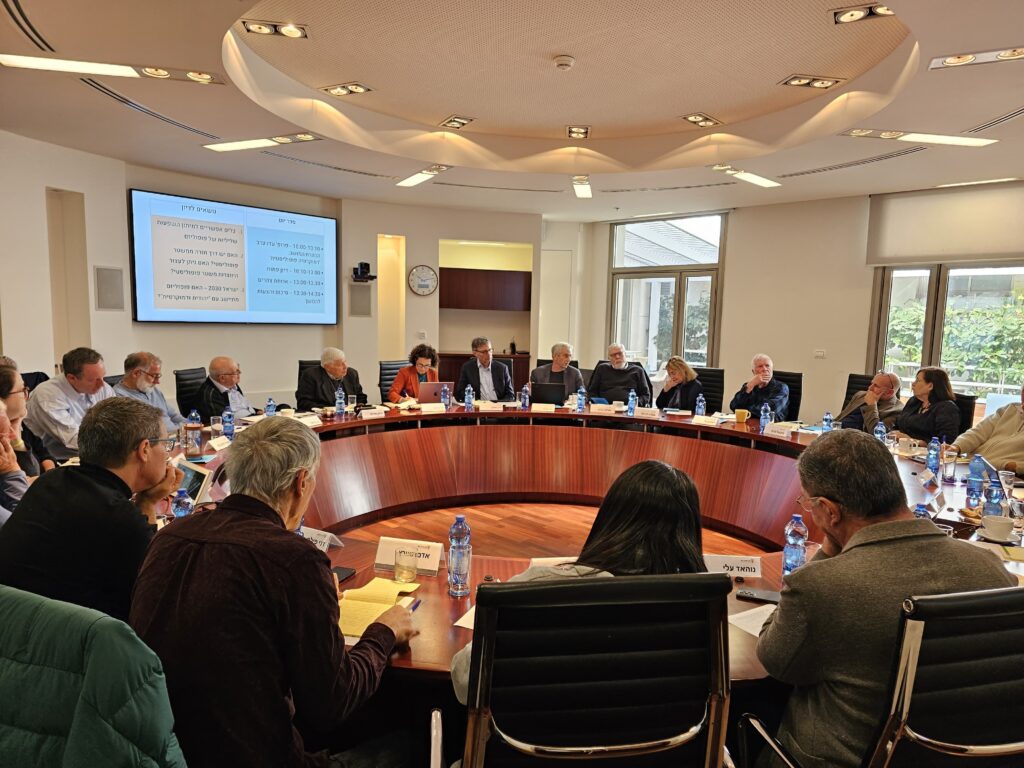
The Economy and Society Forum, ‘Round Table’ Discussion, February 29th, 2024. The round table discussion took place as part of the Economy and Society Forum at Neaman Institute. It focused on democracy in Israel as the cornerstone of any discussion in the realm of economy and society. For several years now, Israeli society has experienced […]
Haredi Recruitment in Israel – A Broad Perspective

The issue of Haredi conscription, including the recurring rounds of legislation, holds immense and intricate significance: it encompasses social, security, political, judicial, and ethical dimensions. Alongside political engagement within the government and Knesset, public discourse — rages no less fervently the moral-ethical question of equality in the burden of service. Most of the discussion, on […]
Guidelines for Creating Educational Continuity During Prolonged Crisis Situations: Insights from the ‘ Education during crisis’ Forum
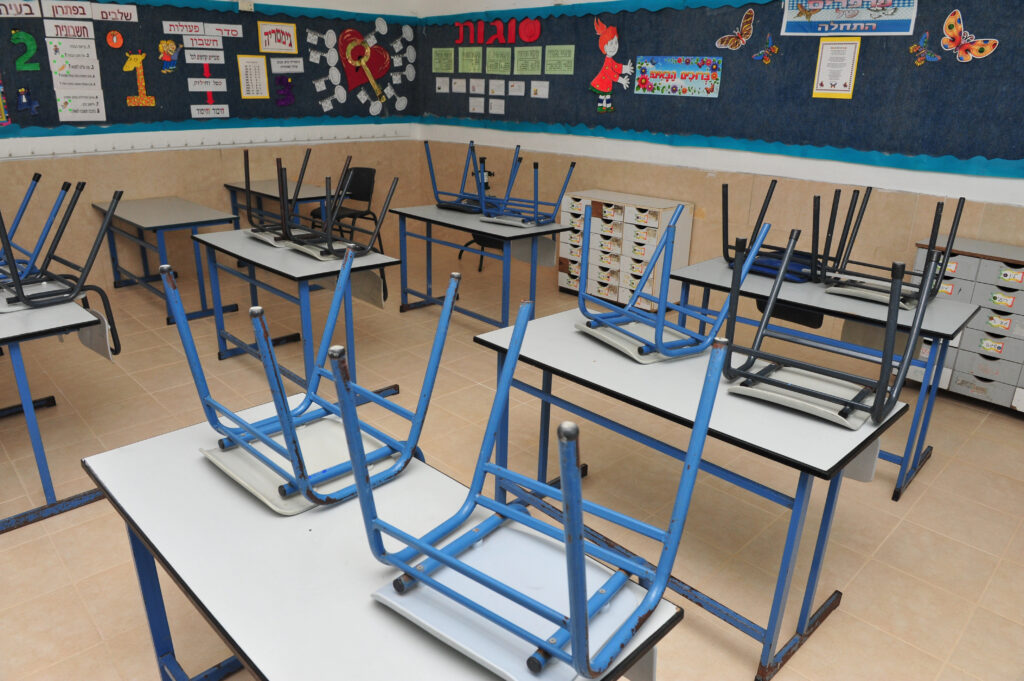
The presented analysis and recommendations aim to ensure uninterrupted educational routine for all Israeli pupils, with a specific focus on those evacuated. This report was written following the Iron Swords War eruption on October 7, 2023 for about three months (from November 12, 2023, to January 28, 2024). This war and the crisis that followed it, posed the education system with multifaceted and complex challenges previously unencountered, but will most probably will face in future crisis situations, such as earthquake events in Israel.
Past initiatives to strengthen the Israeli society: Lessons from the Past
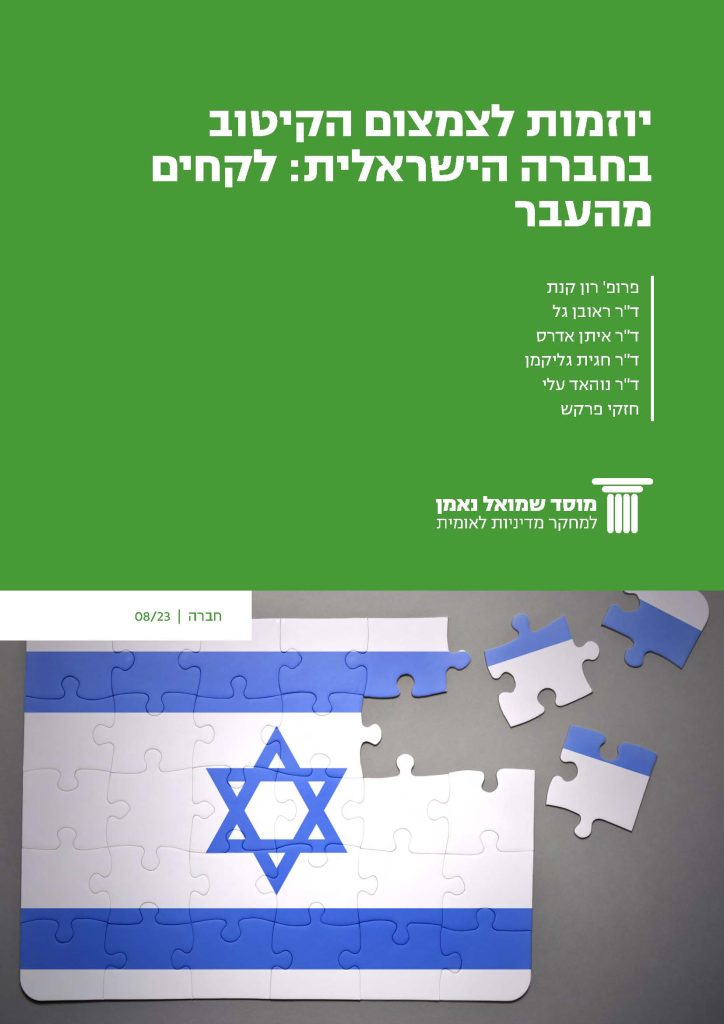
Israel is in the midst of a multidimensional crisis combining legislative initiatives, policy changes and public upheaval. This led to long lasting protests that exposed the fragmentation of the Israeli society. The Samuel Neaman Institute has addressed issues related to the Israeli society since 2005, including a unifying definition of societal resilience (Gal, Padan, 2020). […]
Post-Truth Phenomena: Definitions, Consequences and Solutions

The outbreak of COVID-19 in 2020 has brought the term “infodemia” to the forefront of public discourse. Infodemia refers to an epidemic of false and misleading information that spreads rapidly in the online space. It is a manifestation of the phenomenon known as “post-truth”, a term that describes a reduction or negation of the role […]
“Common Ground”: Agreed Road Map for Long-Term National Paradigms
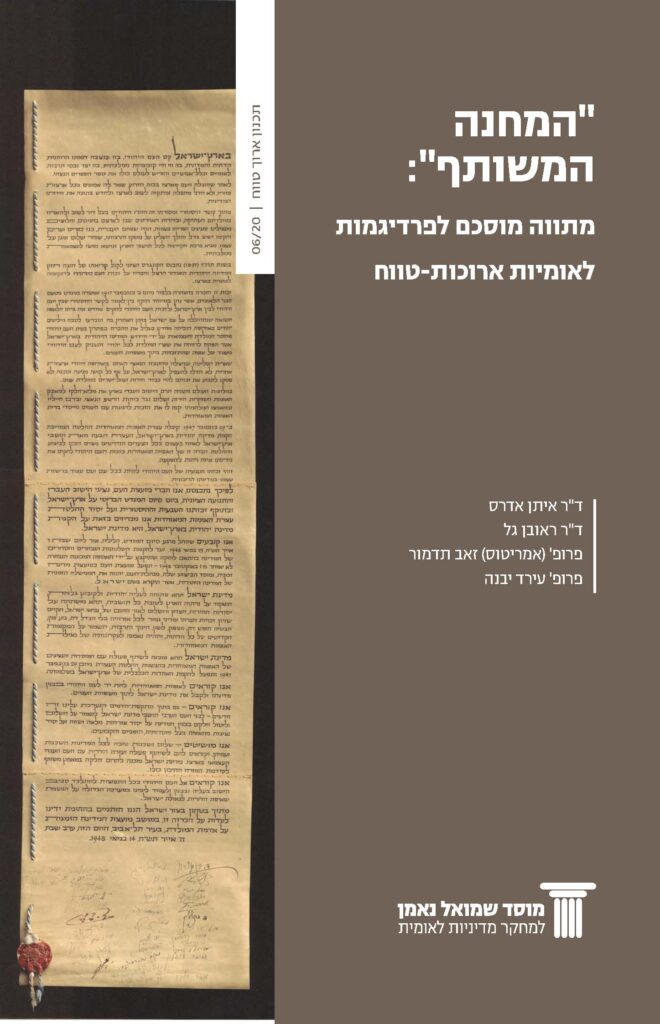
Strategic thinking process for the state of Israel is presented. Based on interviews of 40 prominent Israelis, from diverse walks of life, we find a wide common ground in considering the ‘Declaration of Independence’ (1948) to be Israel’s vision for the coming decades. To validate our proposition that the vision chapter of the Declaration of […]
The Global Economic Impact of the Russia-Ukraine War
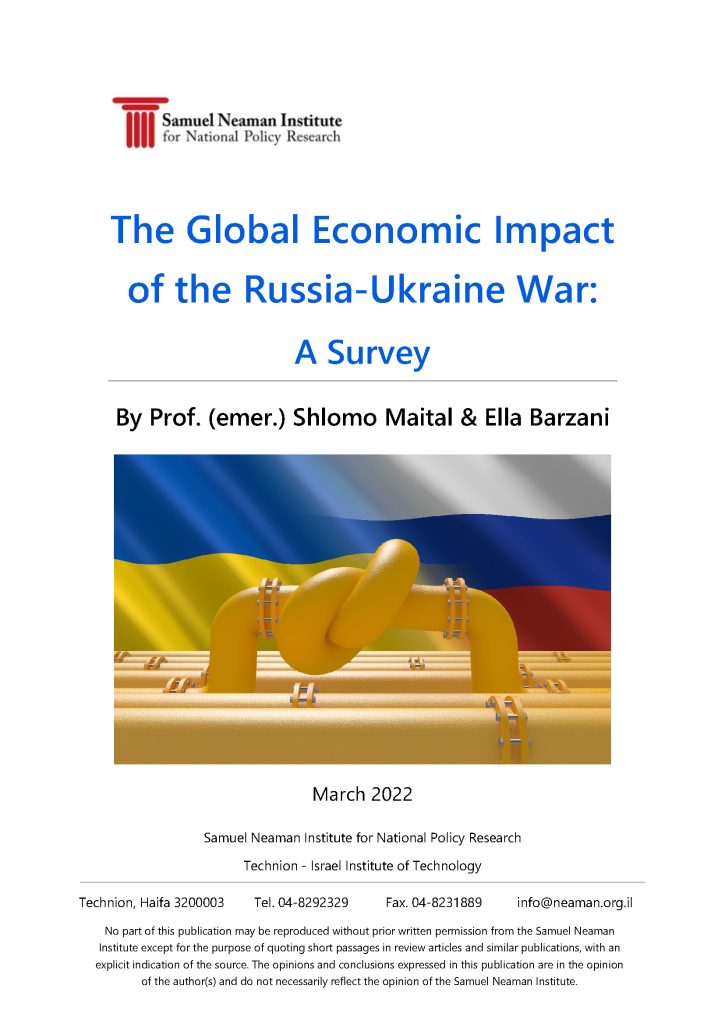
This survey was prepared 20 days after Russia launched its invasion of Ukraine. It reviews what we regard as credible knowledgeable insights on: stagflation, supply chain issues, ‘when the guns fall silent’, China as ‘monkey in the middle’, geopolitics and policy recalculation, and a conclusion.
